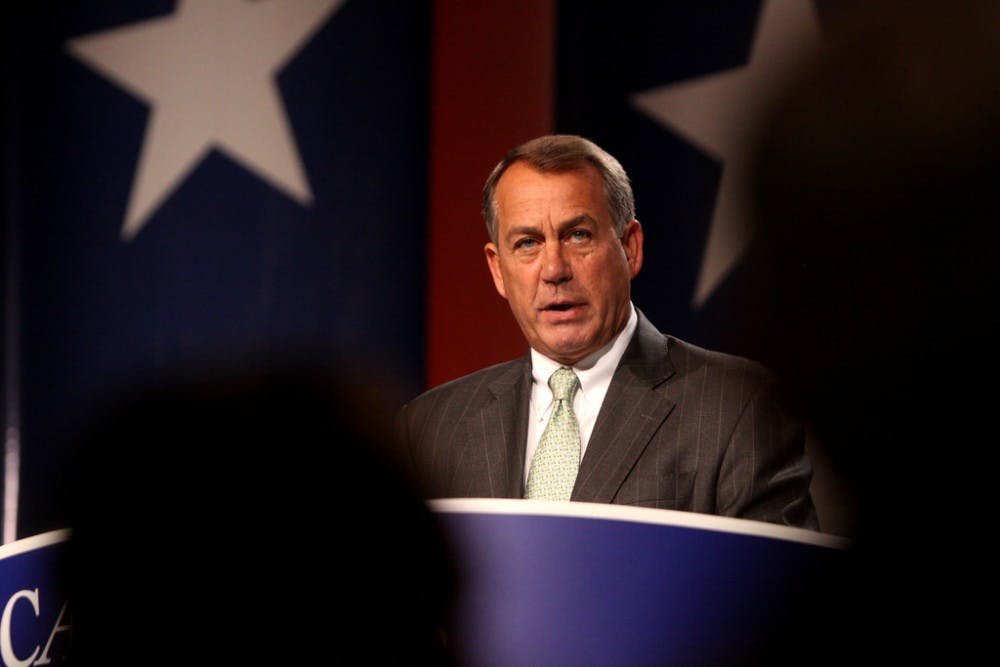As Republicans and Democrats continue to climb the mountain of political negotiations, and near the peak of 2013, the U.S. economy hangs dangerously close to the edge of the fiscal cliff.
In the weeks following the November election, congressional Republicans led by Speaker of the House John Boehner and Senate Democrats led by President Barack Obama expressed positive perspectives in coming together to avert the fiscal cliff.
The period of positivity seems to be eroding fast as the political capital earned fades to distant memory on both sides and is replaced by hard-line partisan politics in a struggle that could define the balance of power until midterm elections in two years.
The cliff threatens to plunge the slowly rebounding American economy back into recession in January of 2013 when a series of tax hikes and spending cuts are scheduled to automatically expire as a result of past bipartisan negotiations that were put in place to avoid a government shutdown.
“I have got to tell you, I am disappointed in where we are and what has happened in the last couple of weeks,” Boehner said.
House Republicans are calling for cuts to major entitlement spending programs and their rates of growth such as Medicare and Medicaid, as part of their compromise to go along with the middle class tax cuts and upper class tax hikes proposed by Obama and Senate Democrats.
Slashed taxes will affect 98 percent of Americans while the tax increase, opposed by Republicans, will apply to the wealthiest two percent.
In a bid to corner Republicans into negotiations this past week, President Obama stated both sides agree the tax cut is crucial, and as such the House should vote to pass the bill and move on to remaining ‘cliff’ issues from there.
“That is a disagreement that we are going to have and we have got to sort out. But we already all agree, we say, on making sure middle-class taxes don’t go up. So let’s get that done. Let’s go ahead and take the fear out for the vast majority of American families so that they don’t have to worry about $2,000 coming out of their pockets starting next year,” Obama said.
Meanwhile, Boehner said that the congressional Republicans’ willingness to “put revenue on the table” is proof enough that they are willing to compromise.
Boehner’s revenue refers to the specific cuts to the deficit Republicans want to see before they agree to any tax change.
According to a recent poll by CNN, 35 percent of Americans would blame the president if no compromise is reached before January compared to 45 percent who would blame congressional Republicans.
Across the aisle, both sides agree $4 trillion in deficit reduction is necessary over the next 10 years through tax code changes, entitlement programs and general spending cuts.
As political friction rises with only days to go before Congress recesses for winter break, agreements on cuts have only grown more divisive.
If past is any indication, one side will be forced to turn away from this game of political chicken in order to avoid a head-on collision with economic recession for the American economy in January.

